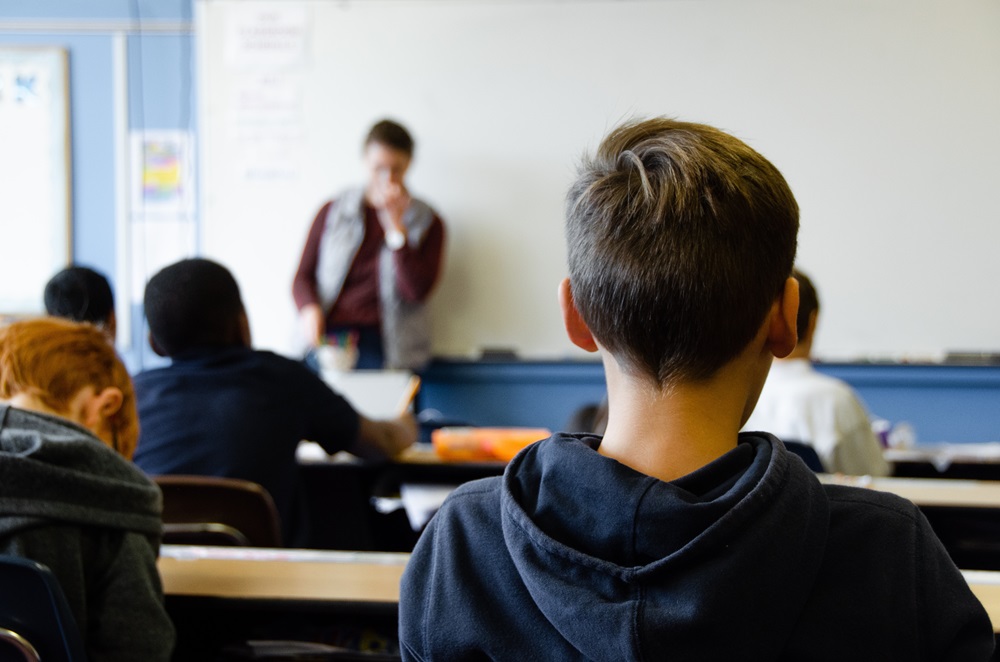
The Virginia Board of Education is asking the General Assembly to develop a plan for changing the state’s existing school funding formula to help divisions strapped for money but isn’t backing a proposal to remove a cap that limits the number of support positions the state will fund.
According to an earlier report by the Joint Legislative Audit and Review Commission, which conducts analysis and provides oversight of state agencies on behalf of the General Assembly, changing the formula could help address the underfunding of schools.
“We don’t have a good school financing system in Virginia. It is inequitable, and it’s outdated,” said Board of Education member Andy Rotherham during a special meeting Tuesday.
Virginia’s funding formula establishes how much state and local governments must provide to meet the state’s Standards of Quality (SOQ), the requirements that Virginia public schools must meet. The board reviews those standards every two years and proposes changes as necessary, while the General Assembly makes decisions about how much funding divisions should get.
In addition to backing a new funding formula, the board on Tuesday also urged the General Assembly to provide flexible funding for innovative approaches to literacy and math education, require high school students to have an opportunity to make their own academic and career plans and provide funding for a statewide individualized education program system.
Although board members noted that a decision by the General Assembly to provide divisions more flexible funds could allow them to address a range of different needs, member Anne Holton pushed unsuccessfully for the body to recommend a minimum funding commitment from lawmakers.
“Many divisions, the ones that can afford to fund way over the minimum SOQs … their kids are doing okay,” Holton said. “But the divisions that can’t afford to go way above the state and dated minimum SOQs don’t fund over it, and their kids are not doing okay.”
Funding formula
JLARC this summer recommended the General Assembly consider changing the funding formula after finding that Virginia schools receive 14% less state funding than the 50-state average, equal to roughly $1,900 less per student.
Virginia’s current SOQ formula determines funding for divisions by calculating the number of staff they need and then the cost of those staff.
While the Virginia Department of Education said in a Dec. 12 report that the approach worked historically, it said school divisions today are “faced with a myriad of unique student needs.”
“Funding should be allocated by student, recognizing the unique needs of each student rather than using a formula driven by staffing ratios,” the report stated.
On Tuesday, in line with that suggestion, the board recommended policymakers “investigate, model and develop a plan to move to a student-weighted funding formula for purposes of determining the required state and local shares of cost for the Standards of Quality.” Read More
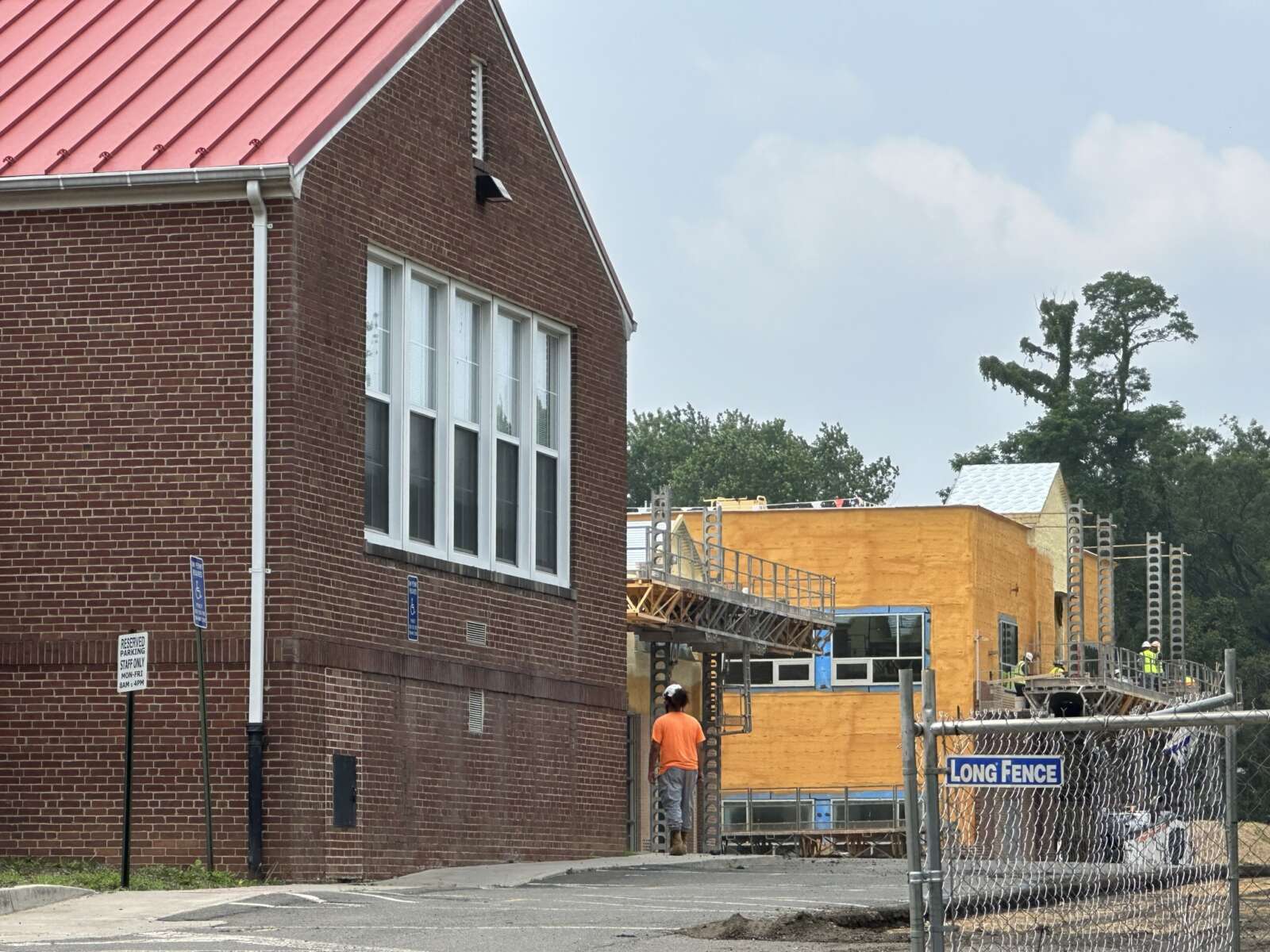
Democrats are again pushing for legislation that would allow local governments to hold referenda on increasing their sales and use tax to pay for school capital projects such as construction and renovations.
The party hopes the effort, which has been tried twice before but defeated by Republicans, will be successful now that Democrats are set to control both the House of Delegates and the Senate following the November elections.
“We think with the change in the dynamics in the House that this bill has a very good chance,” said Sen. Jeremy McPike, D-Prince William, adding that a similar version of the bill passed with bipartisan support last year in the Democratic-controlled Senate before dying in the House.
Under current law, only nine localities can impose a 1% sales tax to fund school construction and renovation projects. They are the counties of Charlotte, Gloucester, Halifax, Henry, Mecklenburg, Northampton, Patrick and Pittsylvania and the city of Danville.
Local governments have control over adjustments to their property tax rates — but aren’t allowed to change the sales tax rate without explicit permission from the General Assembly.
In 2021, Virginia invested nearly $1.3 billion into programs distributing grants and loans for school construction after a survey found over half of Virginia’s schools are more than 50 years old, with replacement costs for each in the millions.
“It’s really about empowering localities to make their own decisions about how they want to fund schools, and this is a new tool in the toolbox,” McPike said.
Lawmakers have already set a “precedent of permitting localities to impose a sales tax increase for school capital projects through the referendum process,” he said, “but what the bill would do is essentially allow all localities to make that choice and figure out if that’s the right fit for their community and their community needs.”
Former Republican Del. James Edmunds, R-Halifax, introduced a bill last session to add Prince Edward County to the list of localities allowed to impose a 1% sales tax for school capital projects. However, a House Finance subcommittee failed to hear the proposal.
In 2019, Edmunds successfully carried legislation to add Halifax County to the list of permitted localities.
Republicans have been reluctant to support changes to the law that could allow the raising of taxes, outgoing Sen. Tommy Norment, R-Williamsburg, told the Mercury last session.
If the legislation can make it out of both chambers, the bills will still require approval by Republican Gov. Glenn Youngkin, who could sign them into law, veto them or suggest changes.
This article was reported and written by the Virginia Mercury, and has been reprinted under a Creative Commons license.
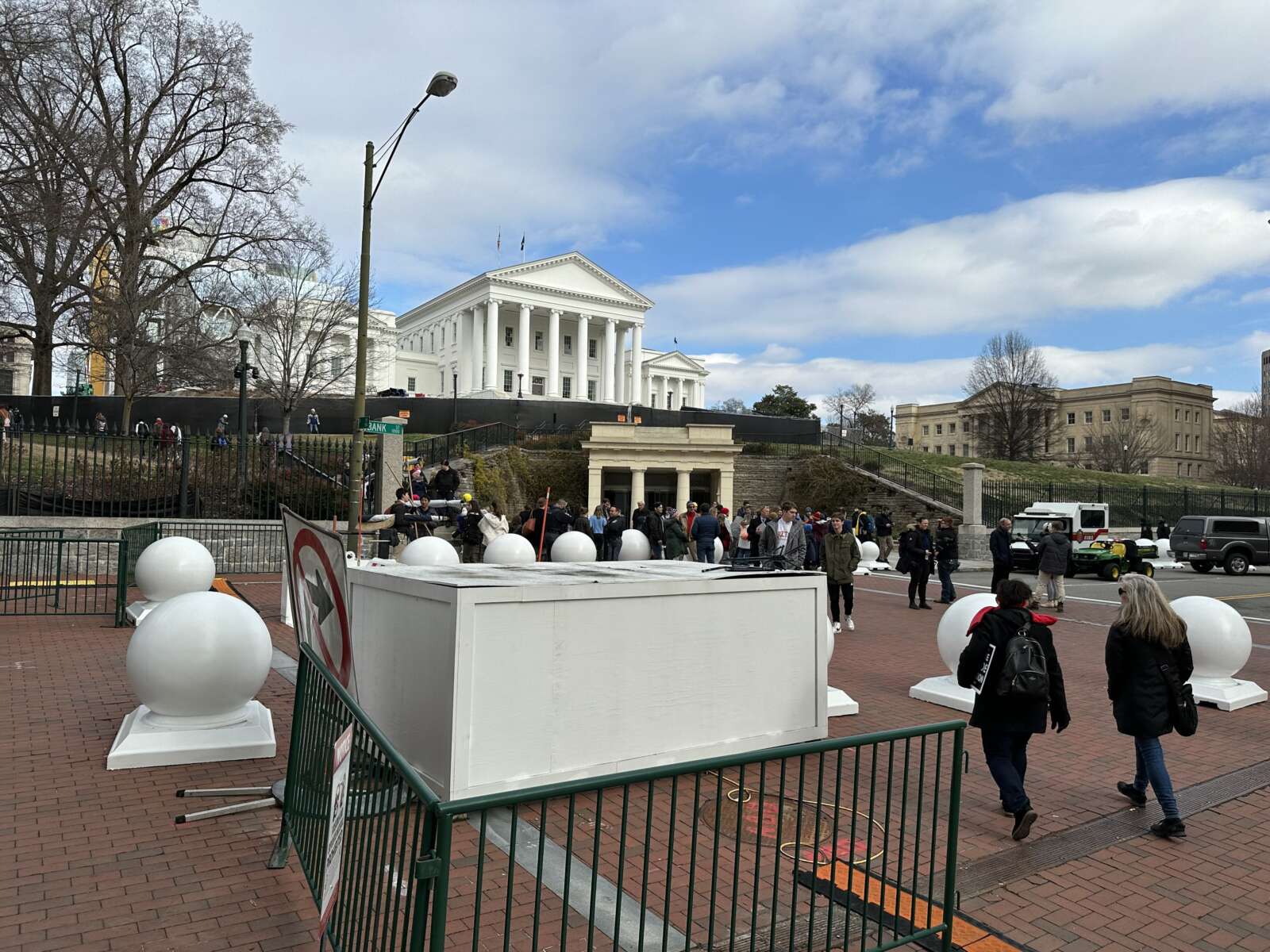
Virginia’s next General Assembly won’t convene until Jan. 10, but senators and delegates have already begun penning legislation. (And by that, we mean the Virginia Division of Legislative Services is hard at work translating their goals into the high-flown tones of state code.)
On Monday, the start of the 2024 session’s official prefiling period, lawmakers dropped the first bills that will be up for consideration this January.
Much more is yet to come as Democrats and Republicans jockey for ways to realize their key priorities on everything from hot-button issues like abortion access to the more bread-and-butter legislation that ensures state laws and agencies remain abreast of an ever-changing world. Democrats will have control of both the House of Delegates and Senate when lawmakers return to Richmond, but the slimness of their majorities means they aren’t guaranteed to get everything they want.
Here’s what was proposed on the first day bills could be filed:
Constitutional amendments on abortion
Two bills — House Joint Resolution 1 from Del. Charniele Herring, D-Alexandria, and Senate Joint Resolution 1 from multiple female Democratic senators — would start the process of amending the state Constitution to declare that “every individual has the fundamental right to reproductive freedom” and that the right should not be denied or infringed upon “unless justified by a compelling state interest and achieved by the least restrictive means that do not infringe an individual’s autonomous decision-making.”
No single bill has the power to change the state Constitution. Amendments require that a resolution be passed by a majority of both houses during a session and then held over to be passed again by the next elected legislature, with an election intervening between the two approvals. If it succeeds the second time, voters must approve the change in a referendum before it takes effect.
Constitutional amendment on felon voting rights
Two bills — House Joint Resolution 2 from Del. Elizabeth Bennett-Parker, D-Alexandria, and Senate Joint Resolution 2 from Sen. Mamie Locke, D-Hampton — would begin the process of amending the Constitution to restore voting rights to felons who have served their time. Currently, Virginia is the only state in the U.S. that strips voting rights from all felons for their entire life, with restoration only possible if they petition the governor and the governor decides to grant their request.
“A person who has been convicted of a felony shall not be entitled to vote during any period of incarceration for such felony conviction, but upon release from incarceration for that felony conviction and without further action required of him, such person shall be invested with all political rights, including the right to vote,” the amendment states. Read More
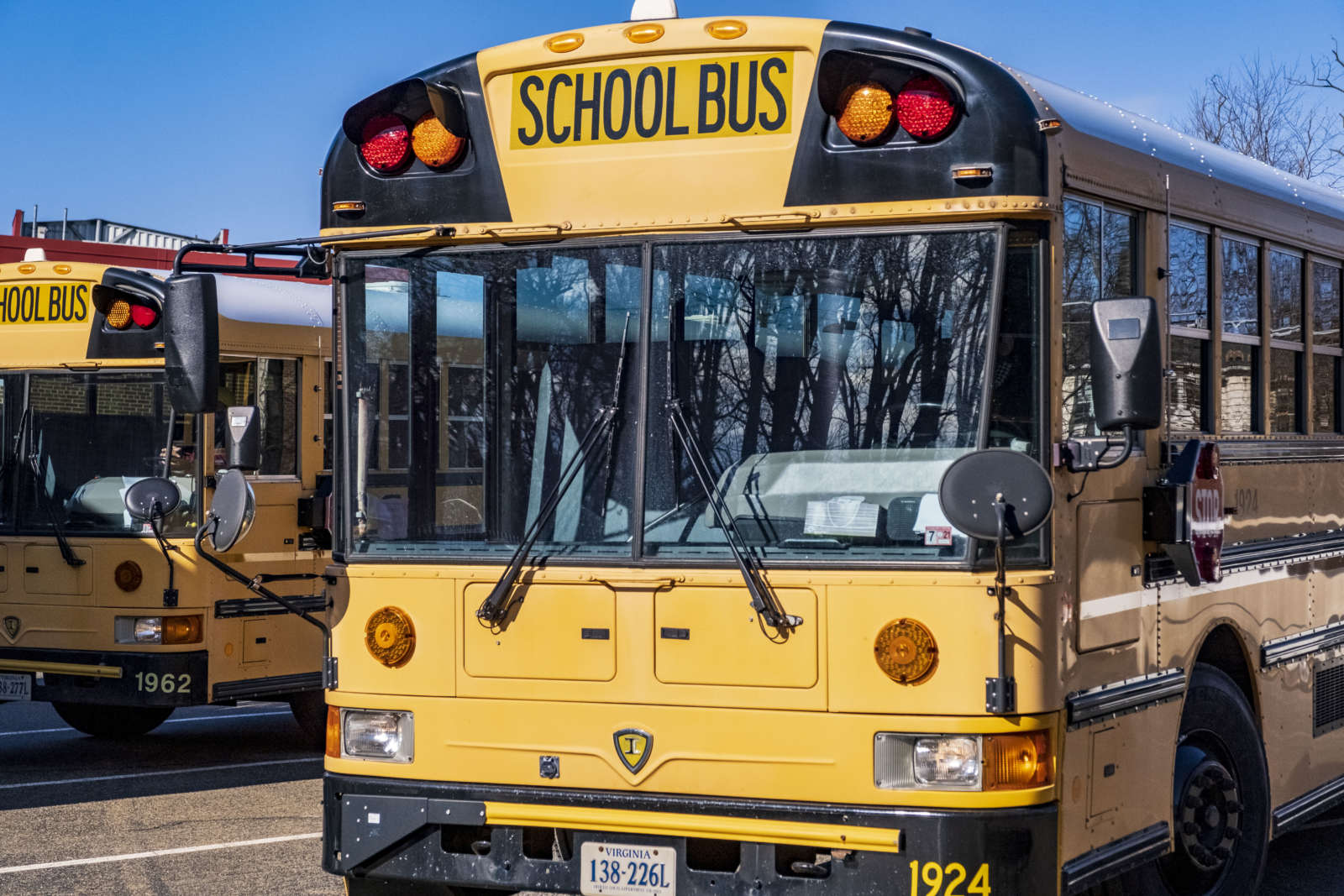
Before the new class of General Assembly members takes office in January, they are facing a push from local government leaders to quickly address Virginia’s historical underfunding of its school divisions.
In September, the General Assembly convened a group to examine how the state’s funding formulas could be updated to fix the problem, with recommendations due next November, ahead of the 2025 legislative session. However, many local governments say the timeline needs to be faster and are urging the legislature to take action immediately, at the start of the new budget cycle.
“We’re not asking for anything additional from the state,” said Jason Bellows, president of the Virginia Association of Counties. “We’re just asking them to fully fund their agreed commitments of their fair share.”
This July, the Joint Legislative Audit and Review Commission, which conducts analysis and provides oversight of state agencies on behalf of the General Assembly, found that Virginia schools receive 14% less state funding than the 50-state average, equal to roughly $1,900 less per student.
Part of the problem, the report found, was that complicated funding formulas underestimate how much divisions need: In fiscal year 2021, for example, schools spent $6.6 billion more than was allocated by the Standards of Quality formula, which is used to calculate how much the state must contribute to fulfill its constitutional obligation to maintain high-quality public school systems.
Perhaps more significantly, during the Great Recession, state funding levels dropped dramatically and the legislature imposed a “support cap” limiting the number of support positions the state would fund. Positions affected by the cap included central office and administrative, technical, clerical, maintenance and instructional support positions.
But despite the state’s financial recovery following the recession, funding levels have never been fully restored, and the support cap was only partially lifted by the last state budget negotiated late this summer.
Many local governments weren’t surprised by JLARC’s findings, which they say validate years of school divisions arguing the state inadequately funds public education.
Bellows said public education is supposed to be a “50-50 share” between the state and local governments, with the federal government helping as necessary.
“The local governments have been stepping up to the plate and funding public education well above what we are required to do because the state, in their minimum requirements, can’t get the job done,” he said. Read More
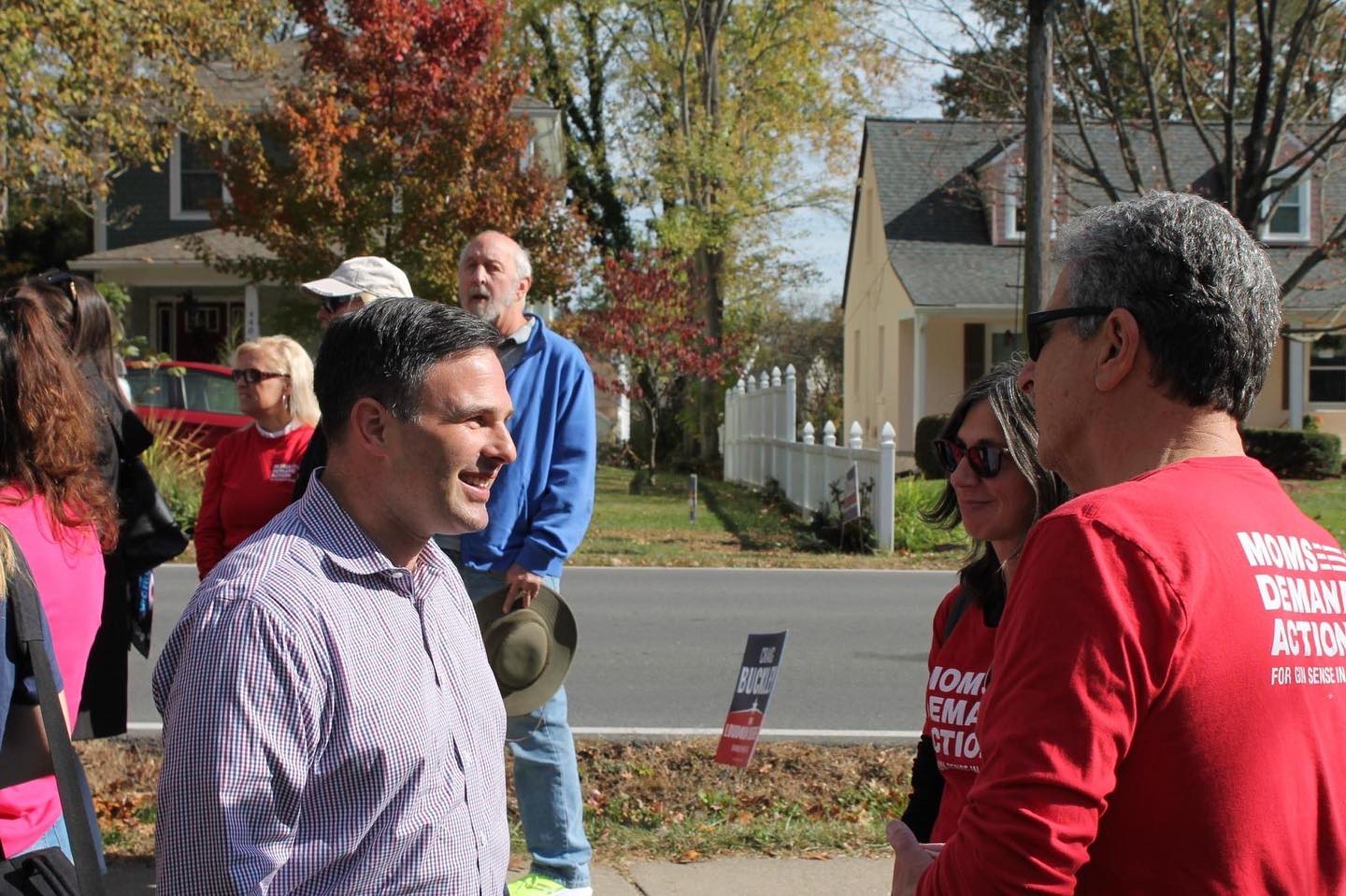
And then there were five.
Del. Dan Helmer of Fairfax County announced Wednesday morning that he is joining the race for the Democratic nomination in Virginia’s 10th Congressional District next year.
Helmer, a U.S. Army veteran who was first elected in 2019, led the House Democratic Caucus’ campaign effort this fall, which resulted in Democrats picking up three seats and regaining control of the chamber.
The 10th District is currently represented by Rep. Jennifer Wexton, a Democrat, but Wexton announced earlier this year she will not seek reelection for health reasons.
Other Democrats who have announced campaigns for the seat are:
- Current state Sen. Jennifer Boysko of Fairfax County
- Former Speaker of the House Eileen Filler-Corn
- Former Virginia Secretary of Education Atif Qarni
- Current Del. David Reid of Loudoun County
Loudoun Board of Supervisors Chair Phyllis Randall had been mentioned as a candidate, but she ruled out a run Tuesday, saying she wanted to focus on her third term as board chair.
The 10th District includes all of Loudoun County — making up more than half its voters — along with all of Fauquier and Rappahannock counties and the cities of Manassas and Manassas Park. It also includes the western half of Prince William County and about 15,000 voters in the Clifton and Union Mill areas of southern Fairfax County.
After knocking off Republican Barbara Comstock in 2018, Wexton won reelection to the newly drawn 10th District last year with about 53% of the vote, defeating Republican Hung Cao.
Helmer was reelected Tuesday to House District 10, defeating Republican Jim Thomas with over 58% of the vote. His district covers southwestern Fairfax, including the town of Clifton and the Centreville area. Before redistricting after the 2020 Census, he also represented a small portion of Prince William.
Helmer is the son of an immigrant and the grandson of refugees and Holocaust survivors, according to a news release from his campaign. He graduated from the U.S. Military Academy at West Point, and served tours in Iraq, Afghanistan and Korea. He currently owns a small business and continues to serve as a lieutenant colonel in the U.S. Army Reserve.
“My grandparents came to America to escape the Nazis,” Helmer said. “It’s why I volunteered to serve our country and protect the democracy that took us in. While I was proud to serve, I lost friends in Iraq and Afghanistan because politicians lacked the courage to stand up to President Bush’s misguided wars. Our democracy failed us.”
He said democracy faces greater threats today: “MAGA extremists are seeking to undermine free and fair elections and strip away the right to an abortion, all while coddling a gun lobby that floods our streets with weapons of war.”
According to the release, in the General Assembly, Helmer supported gun safety bills, the repeal of Virginia’s “Right to Work” laws and women’s healthcare.
He lives in Fairfax with his wife, Karen, a public school educator, and their two sons.
Photo via Dan Helmer/Facebook. This article was written by FFXnow’s news partner InsideNoVa.com and republished with permission. Sign up for InsideNoVa.com’s free email subscription today.
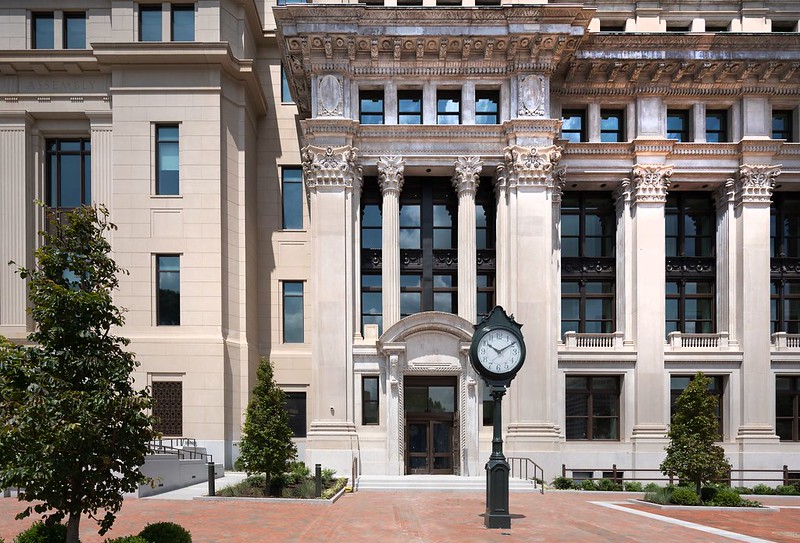
The two-year period before the arrival of Gov. Glenn Youngkin was the first time in decades that Democrats controlled both chambers of the Virginia General Assembly. Come January, they’ll be back in charge.
That sets up a policymaking dynamic that hasn’t been seen in Virginia since the 1990s: A Republican governor working with a fully Democratic legislature.
Because Youngkin will still be able to veto anything the slim Democratic majorities send to his desk, it won’t be anything like the burst of legislative breakthroughs on big topics that Democrats pushed through in 2020 and 2021. With a 21-19 majority in the state Senate and a 51-49 majority in the House of Delegates, Democrats lack the supermajorities needed to override vetoes and enact new laws over Youngkin’s opposition.
After a redistricting-fueled retirement boom earlier this year, more than a third of the candidates elected to General Assembly seats last week will be new to the body, adding a new element of unpredictability to how votes might shake out.
It’s unclear what might top the state’s legislative agenda once the new legislature is seated, but here’s a look at what last Tuesday’s results could mean for a few big policy issues.
A new push for abortion rights
It wasn’t a sure bet Republicans would have had the votes to pass Youngkin’s 15-week abortion ban even if they won majorities. But new limits on abortion are now a nonstarter after Democrats won on promises to stop them.
Winning both chambers gives Democrats the chance to play offense on abortion rights, and they don’t need the governor to do it.
At a post-election news conference last week, abortion rights advocates said they want the new Democratic majorities to begin the multi-year process of amending Virginia’s constitution to protect abortion access.
“Our victory on Tuesday allows us to work with these majorities to advance a constitutional amendment that will be on Virginia’s ballot in 2026 when we keep an abortion-rights majority in 2025,” said Jamie Lockhart, executive director of Planned Parenthood Advocates of Virginia.
Under Virginia’s system, constitutional amendments have to pass the General Assembly two years in a row, with an election in between. That means the General Assembly would have to pass an abortion rights amendment in the 2025 and 2026 sessions, with voters having the final say in the fall of 2026.
Though the Democratic-controlled Senate already passed an abortion rights amendment earlier this year that failed in the Republican-led House of Delegates, Lockhart indicated the amendment’s specifics could change now that Democrats have the ability to give it initial passage.
A similar abortion rights constitutional amendment that passed in Ohio this week included clear language allowing abortion limits past the point of fetal viability, usually around 24 weeks. The initial amendment proposed in Virginia didn’t mention fetal viability as a valid reason to restrict abortion access, leading critics to argue it could override Virginia’s existing law banning abortion in the third trimester. During the campaign season, many Democratic candidates said they wanted to keep Virginia’s abortion laws unchanged. Read More
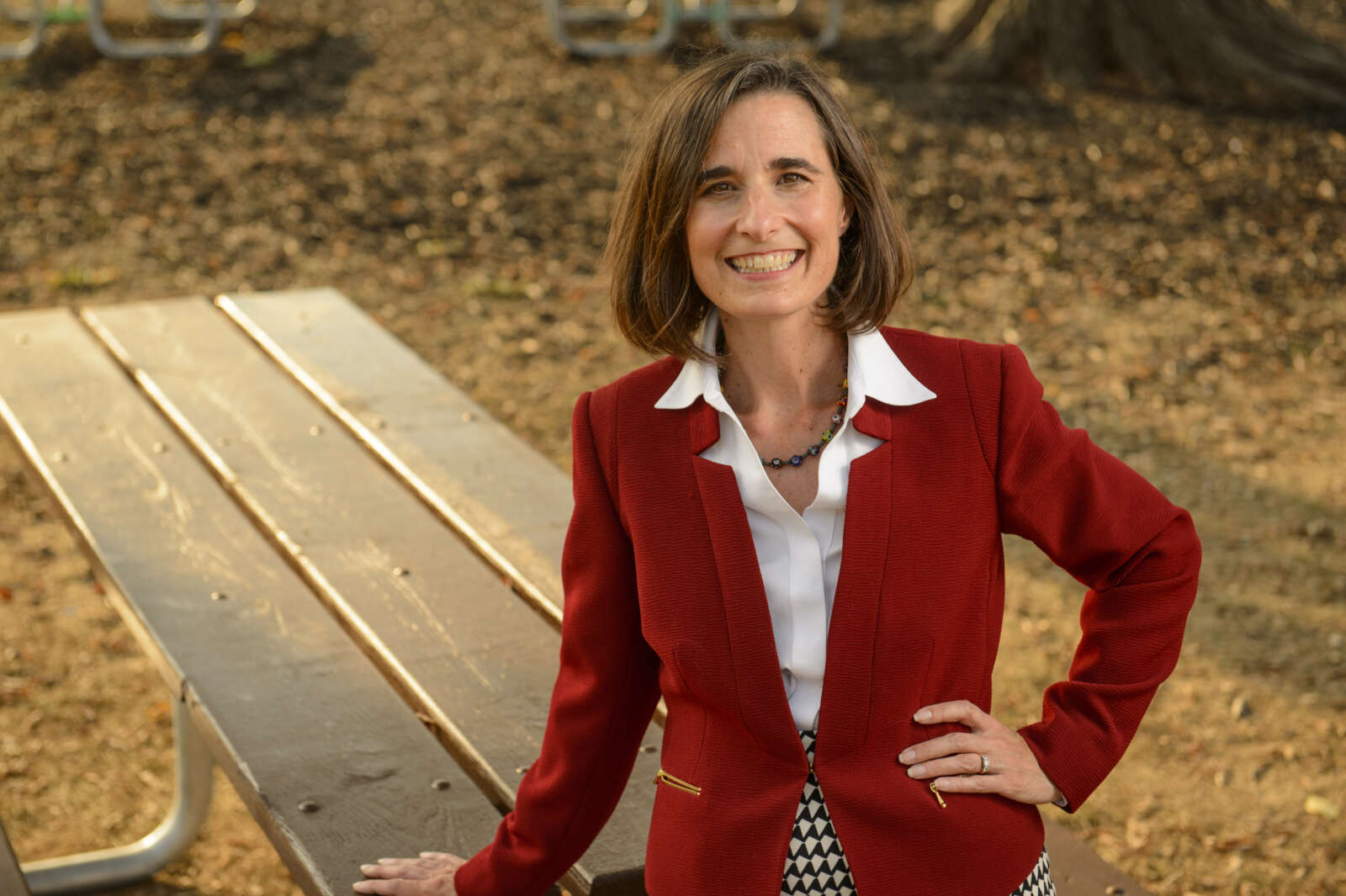
State Sen. Jennifer Boysko has joined the race to replace Rep. Jennifer Wexton as Virginia’s 10th Congressional District representative.
Boysko announced her candidacy today (Thursday), just two days after winning reelection as senator for the 38th District, which encompasses Reston, Herndon, McLean and Great Falls. The district includes portions of the former 32nd District represented by State Sen. Janet Howell, who opted not to seek reelection after redistricting paired her with Boysko.
“From the PTA to the state Senate, I’ve always brought people together to find common ground and work towards common sense solutions,” Boysko said in her campaign announcement. “In Washington, I’ll continue to build on the work of Congresswoman Wexton to bring a better future for our kids and make life better for Virginia’s workers and families. This grassroots campaign to fight for what’s right starts right here, right now. I ask for your vote.”
Boysko’s new campaign website highlights access to abortion, gun violence prevention and “economic policies that work for everyone and lift people up” as the issues central to her platform.
Boysko previously served in the House of Delegates, representing the 86th District from 2016 to 2019, when she got elected to the Senate to replace Wexton, who had just been elected to Congress in 2018.
Wexton said on Sept. 18 that she won’t seek reelection next year after getting a rare neurological disorder called Progressive Supra-nuclear Palsy. Initially diagnosed as Parkinson’s disease, the condition affects “body movements, walking and balance, and eye movements” and has no treatment, she said in her announcement.
Boysko’s competition for the 10th Congressional District — which covers Loudoun and Prince William counties — includes former House of Delegates speaker Eileen Filler-Corn and Mike Clancy, a Loudoun County resident, lawyer and business executive, per his campaign site.
Currently representing Fairfax County from Mantua to Burke as the 41st House District delegate, Filler-Corn announced this spring that she wouldn’t seek reelection, a move that prompted speculation of a potential run for governor. She launched her bid for Wexton’s seat on Oct. 18.
Clancy previously sought a Republican nomination for the 10th District in 2022.
With the Congressional election not coming until 2024, Boysko said in a statement to FFXnow that she remains committed to serving in the state legislature for the upcoming session, citing paid family medical leave as one of her top priorities:
I’ve had a lot of my constituents that have called and asked me if I would run for Congress. They believe that I’m the right person for the job, having represented half of Loudoun County over the past five years, having been in this community for 20 years, helping solve problems. I think my constituents want to see me work at a higher level as an asset and an ally in the Commonwealth of Virginia to make sure we’re getting stuff done.
As for the state Senate, the election’s not until next year, and I look forward to serving in this 2024 General Assembly Session. There’s a lot that I want to get done. Thanks to the hard work of our candidates, we just won the majority in the House and the Senate. I want to get paid family medical leave done at the state level, and I believe that I’ll be able to do that during this session. I’m looking forward to this next year.
Boysko filed a bill during the 2023 General Assembly session that would’ve established a statewide paid family and medical leave program, starting in 2026, but the legislation was left in committee.
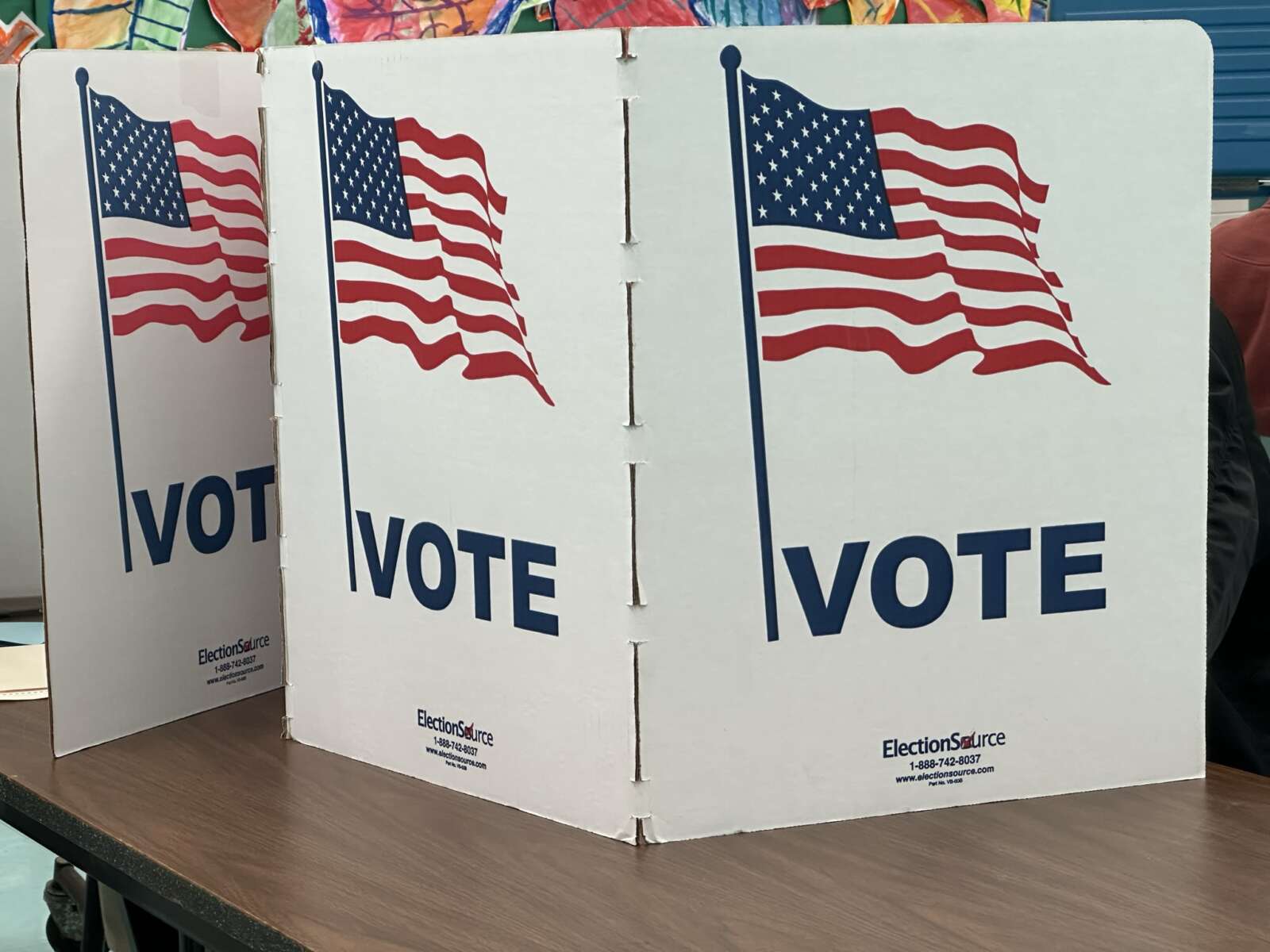
Propelled by a near-sweep of races in Northern Virginia, Democrats have retaken control of the Virginia House of Delegates and retained control of the state Senate.
With a few races still to be called early Wednesday, Democrats appear to have won at least 51 seats in the 100-member House and 21 seats in the 40-member state Senate, according to results compiled by the Virginia Public Access Project. This will mark the third consecutive election that control of the House has shifted — Democrats wrested it away from Republicans in 2019 but lost it in 2021.
The final makeup of the Senate appears likely to remain very similar as Democrats currently hold a 22-18 majority. Late Tuesday night, only one Senate race was in doubt – in the Tidewater area’s 24th District. In that race, Republican Danny Diggs led incumbent Sen. Monty Mason by only 51 votes out of more than 60,000 cast — a margin that, if it holds, means the race is probably headed to a recount.
The House, meanwhile, will flip from a 52-48 Republican majority to at least a 51-49 Democratic majority, based on Tuesday’s unofficial results. Three House races, primarily in the Richmond and Tidewater areas, remained to be called early Wednesday morning.
The results are a repudiation to Virginia Gov. Glenn Youngkin, a Republican, whose Spirit of Virginia PAC poured millions of dollars into key races in an effort to hold the House and win control of the Senate. Youngkin hoped that control of both houses of the General Assembly would allow him to further his legislative agenda, including banning abortions after 15 weeks, except in certain cases.
Many national observers also thought that GOP victories Tuesday could lead Youngkin to make a late entry into the 2024 presidential election.
Emphasizing the importance of the Northern Virginia suburbs, Youngkin wrapped up the campaign with a rally in Leesburg on Monday night and an appearance on “Fox & Friends” Tuesday morning from Manassas.
Redistricting following the 2020 Census moved more seats to rapidly growing Northern Virginia, although nearly a third of legislators statewide retired or decided not to seek reelection because they were placed into districts with fellow legislators. State and national Democrats also poured millions of dollars into the campaigns, which were the most expensive in Virginia history.
As was expected, Democrats won all the General Assembly seats in Fairfax and Arlington counties and the city of Alexandria, along with those in eastern Prince William County and eastern Loudoun County, which have become more Democratic in recent years. Read More
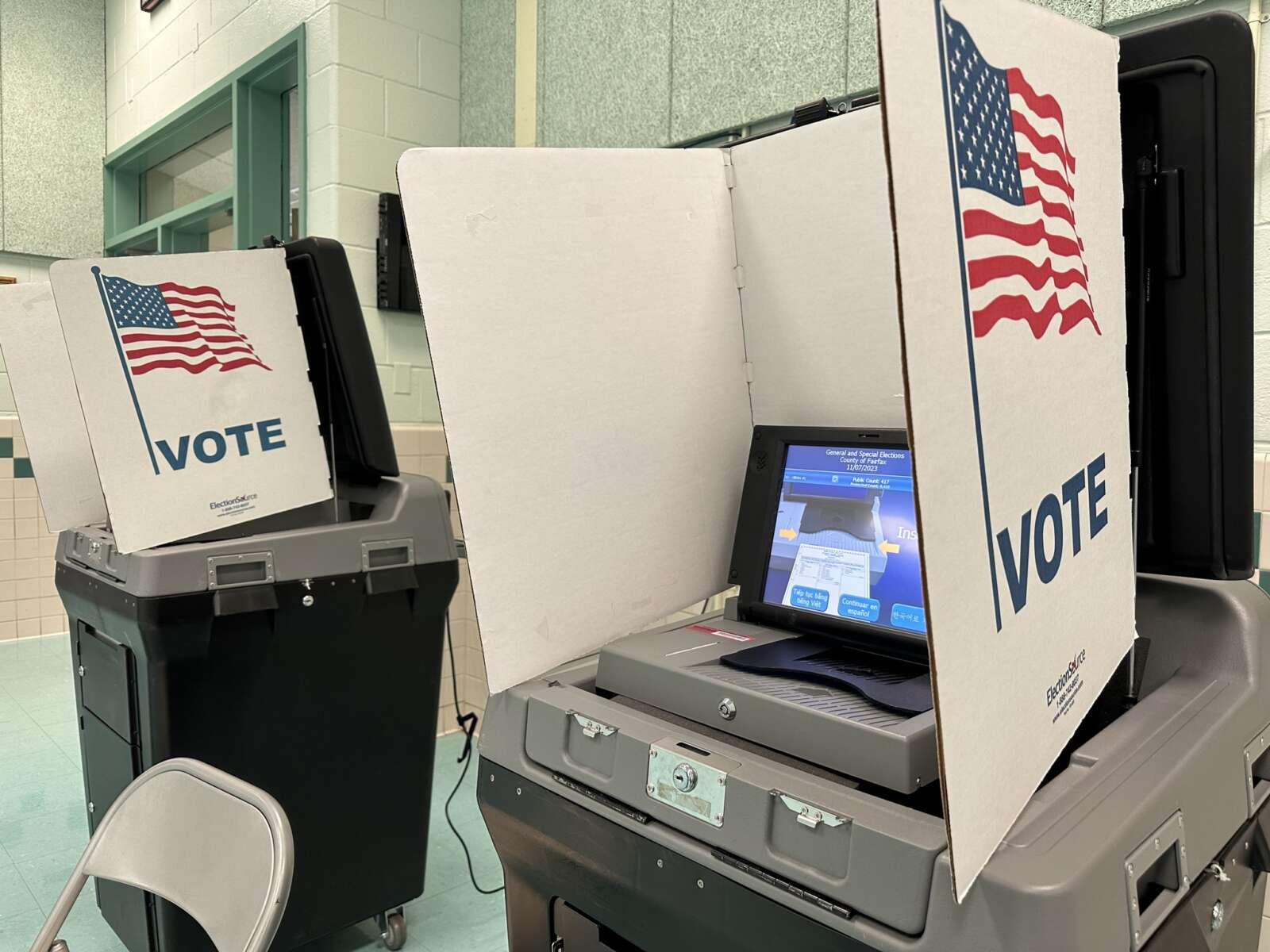
(Updated at 12:35 a.m. on 11/8/2023) The Democratic Party’s hold in Fairfax County remains strong, despite Republican efforts to make headway by centering issues from high taxes and “parental rights” in public education to highway tolls.
Preliminary general election results show that candidates supported by the Democrats, either officially or through endorsements, are in line to win every seat on this year’s lengthy ballot — except for Springfield District supervisor.
Seeking a fifth term on the Board of Supervisors, incumbent Pat Herrity is beating Democratic challenger Albert Vega by roughly 14 percentage points, or around 5,000 votes, as of 10:30 p.m. That would be a more comfortable victory than the one Herrity had in 2019, when he edged out Linda Sperling by just 439 votes.
If the current results hold, Herrity will once again be the only Republican on the 10-seat Board of Supervisors, and all 12 Fairfax County School Board seats, along with the county’s entire General Assembly delegation, will be held by Democrats.
Sheriff Stacey Kincaid and Commonwealth’s Attorney Steve Descano are on track for reelection, though about 22% of the ballots cast for the county’s top prosecutor are write-ins. While the results don’t show the names that voters put forward, a write-in campaign for Ed Nuttall — Descano’s opponent in the June Democratic primary — got endorsed by him and the Fairfax County Republican Committee.
In addition, Democrat Chris Falcon, currently the deputy court clerk in Arlington, won the circuit court clerk race with 62% of the vote, even after Republican Gerarda Culipher got endorsed by current Clerk John Frey, who’s retiring after 32 years.
The three open seats on the Northern Virginia Soil and Water Conservation District‘s five-person board of directors will also go to candidates endorsed by the Democrats. Voters also approved a $435 million school bond referendum that will fund construction and renovation projects and the installation of security vestibules.
With nearly all precincts reporting, here are the apparent winners of this year’s general election:
Board of Supervisors
- Chairman: Jeff McKay
- Braddock District: James Walkinshaw
- Dranesville District: Jimmy Bierman
- Franconia District: Rodney Lusk
- Hunter Mill District: Walter Alcorn
- Mason District: Andres Jimenez
- Mount Vernon District: Dan Storck
- Providence District: Dalia Palchik
- Springfield District: Pat Herrity
- Sully District: Kathy Smith
School Board
- At Large: Ilryong Moon, Ryan McElveen, Kyle McDaniel
- Braddock District: Rachna Sizemore Heizer
- Dranesville District: Robyn Lady
- Franconia District: Marcia St. John-Cunning
- Hunter Mill District: Melanie Meren
- Mason District: Ricardy Anderson
- Mount Vernon District: Mateo Dunne
- Providence District: Karl Frisch
- Springfield District: Sandra Anderson
- Sully District: Seema Dixit
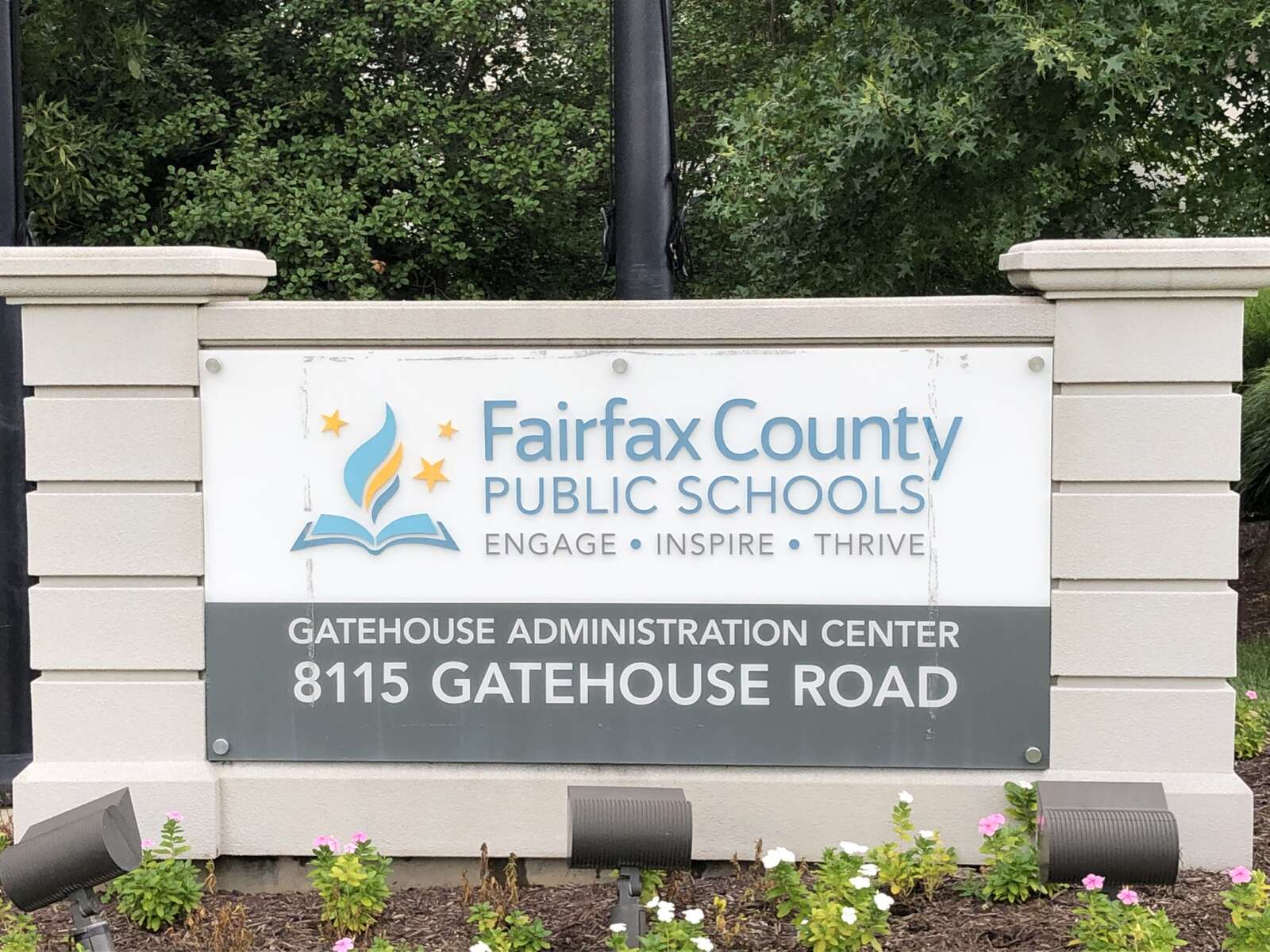
All Fairfax County Public Schools employees will get a bump in their paychecks, starting next year, after the school board unanimously approved 2% raises last week.
The additional pay was made possible by the budget that the Virginia General Assembly belatedly adopted in early September, which provided money to raise teacher salaries across the state. But school board members and FCPS workers argue that overall state funding for education falls far short of what they need.
“While the 2% raise is a start, it is clearly insufficient in ensuring our professionals are compensated at their full value, nor does it bridge the gap enough for family liaisons, drivers, [instructional assistants] and others to earn a wage that allows them to reside in Fairfax County,” Mason District Representative Ricardy Anderson, chair of the school board’s budget committee, said before the vote on Thursday (Oct. 26).
Effective Jan. 1, the 2% raise will ensure FCPS can “retain teachers at the status quo, essentially,” keeping pace with other school districts in the state, Mount Vernon District Representative Karen Corbett-Sanders said. Loudoun, Arlington, Prince William and Alexandria schools have also approved the increase, FCPS staff told the board.
State formula underestimates school staffing costs
According to the meeting agenda, FCPS is getting a $19.7 million increase in state revenue from the revised fiscal year 2024 budget. However, only $5.3 million of that was designated for the 2% raises, with the remainder intended as “reimbursement” for support staff positions, Anderson explained at the school board meeting.
With the raises costing a total of $30.5 million, FCPS is taking advantage of “flexibility allowed with” the support staff funding to allocate that $14.4 million to the compensation supplement, Anderson said. The remaining gap will be filled by $10.8 million from the school system’s staffing reserve, which is set aside in case more positions are needed than anticipated in each year’s budget.
The reserve will still have enough money for about 99 staff positions, FCPS Chief Financial Officer Leigh Burden told the board, noting that new positions aren’t often added after October “because of the potential disruption of adding teacher positions once the school year has started.”
In other words, the “burden” of funding the school system and its employees “rests largely on local funds,” Anderson said.
The standards of quality (SOQ) formula that Virginia uses to calculate the number of positions each school division needs and how much they will cost “substantially” underestimates actual school needs, according to a report released in July by the Joint Legislative Audit and Review Commission (JLARC), which evaluates programs and provides state agency oversight for the General Assembly.
The report found that Virginia provides 14% less funding per student than the national average, trailing Maryland by 18% and West Virginia by a whopping 25%.
“The points made in the study about Virginia being one of the lowest paid states for teachers in the United States is an abysmal statistic to behold,” Tamara Derenak Kaufax, who represents Franconia District on the school board, said. “…We cannot continue to be last in the nation in this, with the pay for our teachers in particular, so it is something that we will continue to fight for.” Read More

